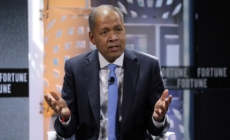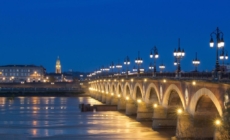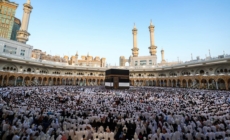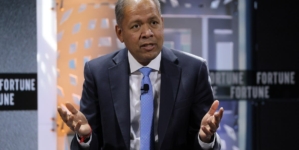-
Former WWE Star Throws Shade at Brock Lesnar During MLW Show - 19 mins ago
-
Prime Minister Viktor Orbán Meets Pope Leo XIV - 37 mins ago
-
Barclays CEO issues warning about US credit risks - 57 mins ago
-
Saquon Barkley tunes out noise on slow start: 'The same player I was last year is still here' - about 1 hour ago
-
Parents’ 6-7 Halloween Costume Goes Viral: ‘God’s Work’ - 2 hours ago
-
Budapest Airport Unveils Winter Schedule with New Flights and Record Capacity - 2 hours ago
-
Buccaneers’ Anthony Nelson makes interception, trucks Saints’ Spencer Rattler, and scores touchdown - 2 hours ago
-
Sadie Robertson Huff faced ‘touch of cancel culture’ over TikTok dance video - 2 hours ago
-
Massive New Project at Islam’s Largest Holy Site: What To Know - 2 hours ago
-
Hungary’s German Minority Secures Leading Post in European Organization - 2 hours ago
Massive New Project at Islam’s Largest Holy Site: What To Know
Saudi Arabia is set to transform the area around Islam’s largest and holiest site with a new project in Mecca designed to reshape the pilgrimage experience for millions of worshipers.
Newsweek has contacted the official website for the King Salman Gate project for comment.
Why It Matters
The Saudi crown prince, Mohammed bin Salman announced plans for the massive King Salman Gate in Mecca on October 15. It will be adjacent to the Grand Mosque, known in Arabic as Al-Masjed Al-Haram and is part of the Saudi Vision 2030 program, aimed at diversifying the nation’s oil-reliant economy. However, grand infrastructure promises of similar scale infrastructure have in some cases struggled to meet timelines or expectations.
What To Know
The mixed-use development is slated to span up to 12 million square meters gross floor area, and will include residential, hospitality, commercial and cultural facilities. The project is said to provide capacity for around 900,000 indoor and outdoor praying spaces, in addition to restoring and developing heritage sites, according to an official press release. The government claims the project will facilitate access to the holy site and generate hundreds of thousands of jobs.
The news has stirred mixed reactions on social media.
“An absolute disgrace! Mr. Salman, display your grandeur somewhere outside of Mecca. Take your hand off the Holy City,” one X user, @Korhanya, commented on the announcement.
The Saudi government has poured massive investment into redeveloping the area around holy site following a series of deadly stampedes and a crane accident that killed more than a hundred people in 2015. Each year, millions of Muslims from around the world gather in Mecca at the same time. Recent upgrades have dramatically improved safety, mobility, and accommodation. Yet while many pilgrims praise the smoother experience, critics note that soaring hotel prices and luxury-focused projects risk making Islam’s holiest journey more difficult for many ordinary worshipers.
Pilgrimage to Mecca, or Hajj, is the fifth pillar of Islam, but is only incumbent on those who have the means and capacity to undertake it. Saudi Arabia holds significant authority over pilgrimage logistics, including visa issuance and access, to address overcrowding and safety concerns.
What People Are Saying
Saudi Arabia’s Public Investment Fund published a press release October 15 stating: “With its seamless connection to public transportation networks, King Salman Gate will ensure easy access and comfort, and will pay homage to [Mecca’s] identity, blending its rich architectural heritage with world-class modern living to create a truly unique experience.”
Saudi writer Bandar bin Abdulrahman bin Muammar, in an opinion piece for outlet Asharq Al-Awsat on October 21, translated from Arabic: “Historically, Saudi Arabia has placed the service of the Two Holy Mosques and the care of the pilgrims at the top of its priorities, a commitment upheld by its kings from the era of King Abdulaziz to the present day. At one point, the Grand Mosque could accommodate no more than 50,000 worshippers. The Saudi expansions were not only intended to increase the mosque’s capacity and facilitate the performance of Tawaf, Sa’i, and prayers with ease and safety, but also to implement comprehensive solutions to address hazards that threatened the safety of the mosque and its visitors, such as fires and floods.”
What Happens Next
Saudi Arabia aims to host 30 million pilgrims annually for both the Hajj and year-round Umrah by 2030.
Source link






























